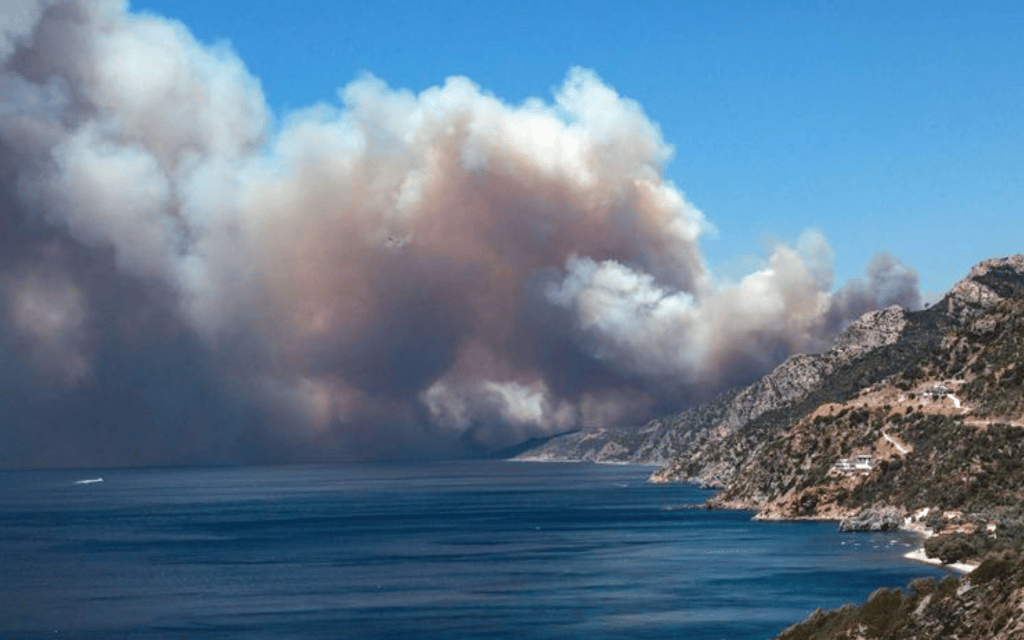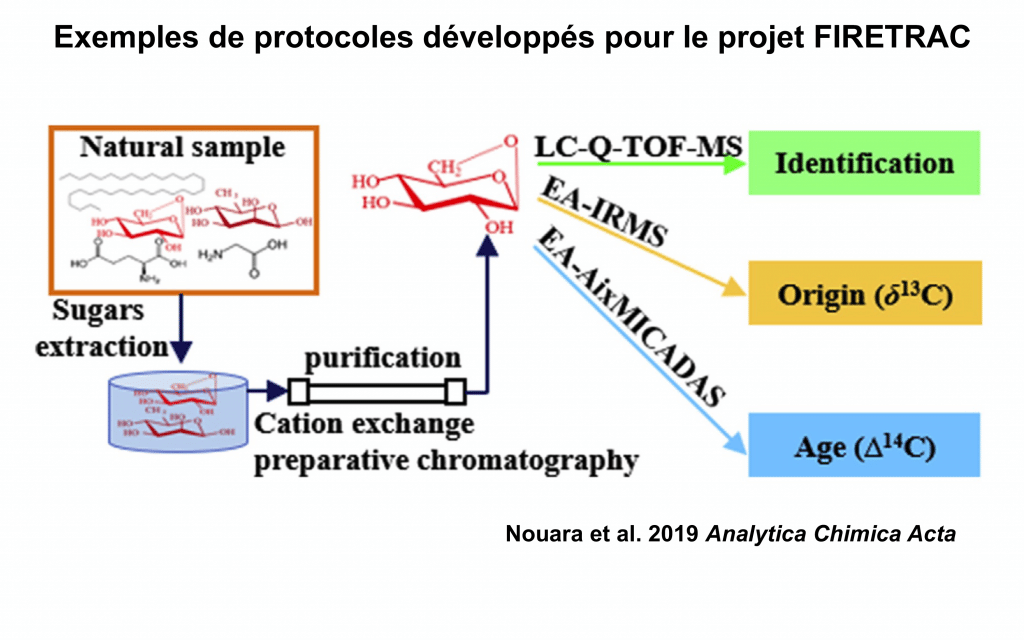- Home /
- Science /
- Climate /
- Climate projects /
- ANR FIRETRAC /
ANR FIRETRAC
Atmospheric particles from forest and biomass fires (BB) are significant contributors to atmospheric particulate matter with important impacts on ecosystems, public health and climate.
However, these impacts are largely unknown due to our inability to trace BB particulate matter and its evolution within ecosystems. Although BB-related atmospheric particles are the main concern of several international programmes, their marine dimension is largely neglected.
FIRETRAC is the first attempt to understand the dynamics of BB-derived particles in marine waters and to establish their link to the marine biological carbon pump (BCP). This kind of information is crucial as it will provide strong evidence whether BB-associated molecules (i.e., anhydrosugars and PAHs) have the potential to be rapidly mineralised, and thus re-injected into the C cycle in the form of CO2, or stored for several thousand years in the dissolved organic matter pool or marine sediments. This information will help improve modelling of BB particles, refine carbon budgets in relation to CO2 emissions and thus provide better estimates of possible global or local climate variations.
The FIRETRAC project will provide the necessary information to understand the dynamics of BB particles in the marine environment by :
. measuring concentrations of anhydrosugars and PAHs over a 2-year period in air at contrasting terrestrial sites and at sea at 3 marine stations located a few km off the coast in the northwestern Mediterranean. The environmental matrices analysed will include atmospheric particles, seawater, marine sediments, and high molecular weight organic matter.
. performing radiocarbon (14C) dating and d13C measurements on individual anhydrosugars isolated from the above matrices to obtain information on their fate and sources in the marine environment.
. evaluating the bioavailability of particles from BBs by carrying out biodegradation experiments on model molecules (e.g. levoglucosan and pyrene) in the presence of heterotrophic bacteria. This information will complement the result acquired by molecular D14C as it will provide short-term behaviour of the same compounds, which is not possible with D14C.
The results obtained from the 2-year monitoring will be used to model the transfer of BB particles from the atmosphere prior to their deposition at sea.
The project involves the use of state-of-the-art instruments such as EA-AixMICADAS (radiocarbon dating), EA - IRMS (d13C analysis), LC - Q - TOF - MS (anhydrosugar analysis) and GC - MS (PAH analysis), including flow cytometry and PCR for microbiological measurements. In total, "FIRETRAC" involves 3 French institutional partners: MIO, CEREGE and CEFREM in collaboration with EPFL (Switzerland).
The consortium brings together a panel of marine and atmospheric chemists as well as marine microbiologists and geochemists. This expertise will be pooled in order to understand the effects of environmental pressures emitted by BB-related particles that may impact the Mediterranean atmospheric composition as well as the fate of their main compounds in the Mediterranean Sea (i.e. impact on BCP, accumulation or degradation?).
FIRETRAC is a contribution to the SOLAS programme and the CHARMEX and MERMEX scientific programmes in the Mediterranean Sea. Given the increasing increase in forest fires, as well as fossil fuel emissions, an accurate prediction of their effects on climate requires a better understanding of the functioning of the marine BCP in relation to BB processes.
2021-2025: ANR FIRETRAC
Impact and Fate of biomass burning and wildfiRe-producEd atmospheric particles in the MediterRanean wAters using Carbon stable isotopes, radiocarbon dating, and modeling
Coordinator:
Christos Panagiotopoulos (MIO)
At CEREGE:
Responsible for: Edouard Bard
Participants: Yoann Fagault, Thibaut Tuna
Partner Institutes MIO, CEREGE and CEFREM in collaboration with EPFL (Switzerland)



